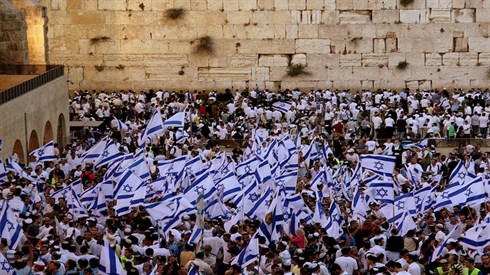120
Question
Following up on my qestion about Sefardim being permitted to wash chalavi and besari dishes in a dishwasher at the same time., I need to ask you about our personal situation.
Our (Ashkenazi) son has a Sefardi wife and they follow R. Ovadia Yosefs ruling. Assuming that they maintain the required stringencies, are we permitted to eat from their dishes? And if not, are we permitted to eat food from their kitchen?
Answer
Shalom,
Thank you for your follow up question. Firstly, let me say how nice it is to see how much you want to be careful on two points – to keep the laws of kashrut, and at the same time I can hear in your question a real and true concern to make sure that there is “shalom beit” and that no one gets offended. May you be blessed to fulfill both desires.
If they are careful to follow the points of Rav Ovadya’s (zt”l) ruling, then there is no question that you can eat in their house. Even though you yourselves follow a stricter ruling, we hold in halacha that one may eat in the house of those who follow a different ruling. So, you can eat their house with a full heart.
Even if they are more lenient than the ruling we wrote, in my opinion you should still eat off their dishes. This is because, in nearly all likelihood if you tried to mention that they should be more careful with their kashrut, or refrained from eating in their house, there would be major issues of shalom, and I assume that people would get insulted and hurt. (If of course you are sure that a careful word or two will fix the kashrut situation then go ahead and mention it. But in my long experience the chances are that this would lead to a big fight, or other pain and anguish).
This being the case, we would look for the most lenient opinions to rely upon after the fact. The halacha is that (after the fact) even if kosher food was cooked on totally non-kosher plates, if the plates and cooking utensils had not been used for the preceding 24 hours, the food is ruled as kosher. (Of course, this situation is only an after the fact ruling – on should not have used such dishes in the first place). Also, the halacha has a working assumption that if we don’t know otherwise, we assume that the dishes were not in fact used in the last 24 hours. Add to this the fact that you are not certain exactly which dishes were put into the dishwasher when and with which other dishes. Also, we can add to this the possibility that many of their vessels and made of substances that do not absorb from each other, such as glass according to many Sephardi Rabbis.
All in all, you can see, that as long as they use kosher food, and have prepared the milk and meat separately, even if they use the dishwasher incorrectly, you would be allowed to eat there – certainly in this situation where we need to make every effort to “keep the peace”.
May you be blessed with much “naches” from your son and daughter-in-law, and enjoy many happy meals together with much Shalom and joy.
Blessings.

Why Celebrate Yom Haatzmaut
Rabbi Ari Shvat | Iyyar 5, 5771

Music on Yom Hatzmauut when celebrated not on the day of the
Rabbi Ari Shvat | Shevat 26, 5772

Shaving for Yom Haatzmaut
Rabbi Yoel Lieberman | Nisan 24, 5770

On which day may one start wishing "Shabbat Shalom"?
Rabbi David Sperling | Iyyar 9, 5780

Bedikat chametz
Rabbi David Sperling | Nisan 11, 5785

Which Prophets did Israel kill?
Rabbi Ari Shvat | Adar 25, 5785






